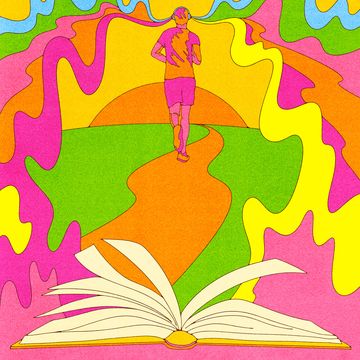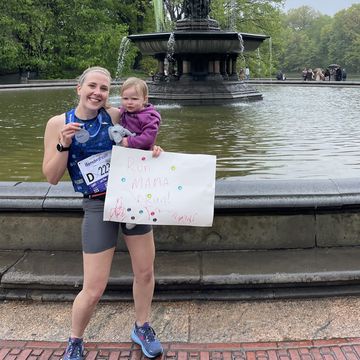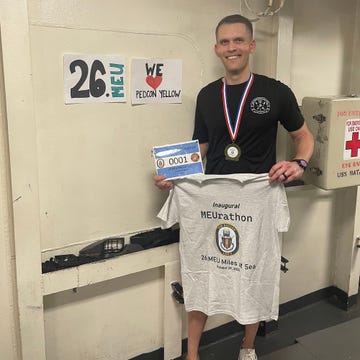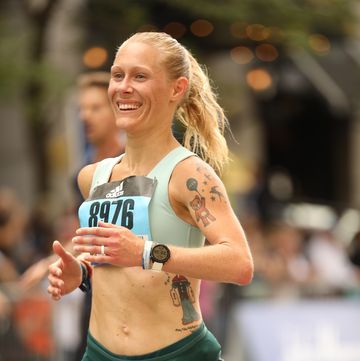It began about a year ago. I was about to start my junior year of college.
Coming off knee surgery to repair an old high school injury, I was healing slowly, but progressing, ready for cross country season. By the time I arrived at our pre-season camp, it was clear something was wrong. But it wasn’t my knee.
I was tired. I was irritated. Irritations turned into an acute sadness. And soon that tiredness started to weigh me down.
What is this? I wondered.
A decade of competitive running had forged in me a resolve that allowed me to ignore the pain. My sport had given me a steely, laser-like focus, which allowed me to push through without telling anyone. Not my coaches, not my teammates, not a soul.
Runners harbor an innate masochism: a derivation of pleasure from pushing the limits. Running presents an opportunity to test yourself. It is you versus the clock, you versus a competitor, you versus that small voice in your head screaming at you to stop.
We run to surpass all that, to be, as Emil Zaptopek famously said “the men separated from the boys.” I'd conducted my life according to this ideology and wasn’t about to stop now.
But as much as I tried to ignore it, that isolating darkness wouldn’t relent. Insomnia kept me up at night causing so much fatigue that I had no choice: I had to stop training.
Running, centerpiece of my life, had been taken from me. The twice a day, 80-mile week regime soon became stretching and rolling out at practice before watching my teammates workout. It left a massive void which was quickly filled by this piercing feeling of sadness. I felt lonely. Very, very lonely.
RELATED: Don’t Miss News and Stories Delivered Straight to Your Inbox
My doctor sent me to a “shrink.” But I didn’t want anyone feeling sorry for me and I especially didn’t want the fake, condescending sympathy of a woman I didn’t know. So I didn't return.
One day after practice, I sat in the shower by myself for what seemed like an eternity. I just stared at the wall, wondering if I should give up running, and why I was doing this to myself. Later, I broke down to my girlfriend in floods of tears.
Soon after, walking home from the library, a thought crossed my mind. If I wasn’t here, if I didn’t exist, then this feeling would stop.
I wouldn’t have to go on like this anymore. The fatigue would be gone. I wouldn’t have to be on my own or so sad anymore.
For far longer than I should have, I entertained the idea of taking my life.
That night as I lay in bed, the fog that had clouded the rational portion of my consciousness lifted. It was time to get help. I could no longer lie to myself. I was suffering from depression and it was getting out of control.
ALSO: Former NCAA Champion Gabe Proctor Dies at 27
I went back to the psychiatrist. I got medication, I lightened my course load, I improved my diet, and I started making myself sleep more. Slowly but surely, things began to improve.
Fortunately for me, I had my close friends, girlfriend, coaches, and family looking out for me from the first day of my ordeal. Also, living on a liberal college campus, it was far more acceptable to talk about mental health problems than almost anywhere else in the world. And still, I had initially tried to hide from it.
My resistance to the idea of mental health, fostered by the toughness ingrained in me by running, nearly killed me.
A few weeks ago, I wrote an article for a college running website documenting my experiences with depression. My inbox swelled with messages from other runners, former competitors, training partners, teammates and people I had never met, describing similar experiences and expressing their wish that there were more narratives like that out there. I was told that I was brave for publicly telling people how I’d felt.
To have to be courageous to talk openly about your feelings is completely unacceptable.
You wouldn’t tell someone that they are brave if they told you they had a broken leg. You should not have to be brave to tell people how you are feeling. The lack of firsthand accounts from people who are suffering from these issues creates a culture of shame and embarrassment, especially in the running community. This culture is killing people.
By attaching my name to this piece, I hope to help remove the stigma associated with these issues. Perhaps my disposition to endure suffering, the same disposition which made me a good runner, made my depression far worse than it had to be. It doesn’t have to be the same for you.













